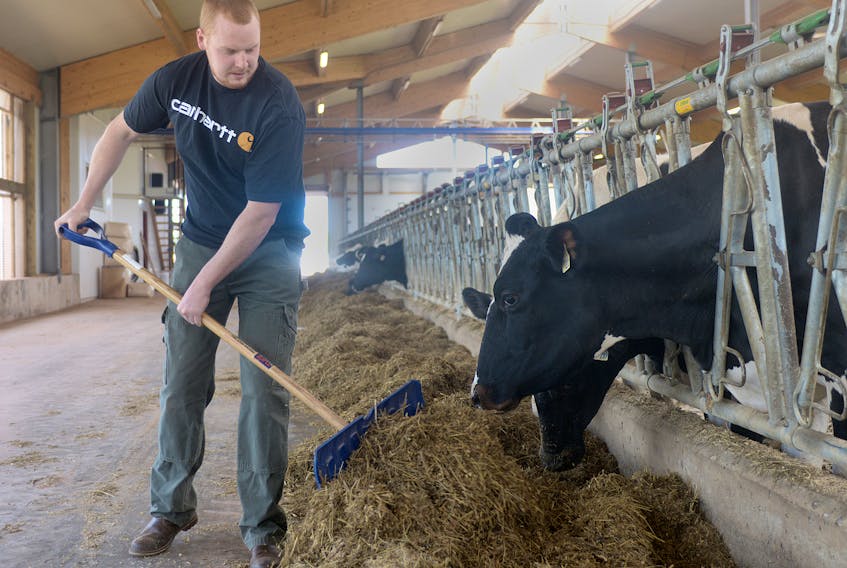BY ALAN HOLMAN
GUARDIAN COLUMNIST
The Americans and the Mexicans are wrapping up their one-on-one talks on a new North American Free Trade Agreement and Canada is expected to soon re-join the discussions.
If the U.S. and Mexico work out some deal on automobiles then we can expect the Americans to be looking for concessions from Canada, and the dairy industry’s supply management system is likely near the top of the list of things they want changed.
It’s not like there are billions of dollars involved, but the concept of a managed market to support the dairy industry irritates the free enterprise Americans, and some Canadians, including one-time Liberal leadership candidate, Martha Hall Findlay. However, these same free-enterprisers are not against farmers collecting massive government subsidies.
Ms. Hall Findlay, who is now the president of the Canada West Foundation, recently wrote that the supply management system “hurts poorest Canadians (often single-parent families with small children) the most.”
If Canada’s poor can’t afford to buy milk, then increasing the subsidies to the poor would be a better use of tax money than changing a system that provides high quality dairy products paid for by the people who consume them, not all taxpayers.
Earlier this week long-time agricultural reporter, Alex Binkley, wrote that too often it’s assumed that only Canada’s dairy farmers are supported, but a study by the European Parliament found that 49 per cent of the income for its dairy farmers is from government subsidies.
The Dairy Farmers of Canada commissioned a study that showed if all the support agriculture programs are taken into consideration, in 2015 the American government paid over $22 billion in direct and in-direct subsidies to American dairy farmers.
American dairy farmers also get another benefit that’s not a government subsidy, but one that is aided and abetted by the U.S. government; and the use of un-documented immigrant workers.
Last year, the Toronto newspaper, the Financial Post, reported that a 2015 study by the U.S. National Milk Producers Federation showed that half of all workers on American dairy farms are immigrant workers, and if those workers were excluded, then the price of milk would increase by 90 per cent, costing the U.S. economy $32 billion dollars.
The Post also quoted another study that found if illegal workers were removed from the dairy farms in New York state, 1,100 of them would either go under or significantly reduce their output.
Canada’s dairy system has other benefits besides a stable industry. Canadian dairy farmers rely on selective breeding to increase the production of their cows. Americans have resorted to drugs, particularly the use of growth hormones, to boost the amount of milk each cow produces.
Scott Sinclair of the Canadian Centre for Policy Alternatives, in an article in the Toronto Star last month, pointed out that it’s possible for Americans to buy hormone-free milk, but it costs more per litre than Canadians pay for their milk, which is all hormone-free.
Canada’s supply management system for the dairy industry has been in place for more than 50 years, and there’s never been an examination of it since its inception. As Alex Binkley says in his article on the website, National Newswatch, it’s been pecked at so often by economists and politicians that the farmers it supports are “understandably defensive.”
But, he argues, maybe it’s time for a thorough review to see how the farms and markets have evolved in the past 50 years. Such a review would hear from supporters, opponents, interested observers, and it would also examine what’s happening in other countries. As Mr. Binkley suggests, an impartial gathering of information might determine if there are any changes that could be beneficial.
If nothing else, he says, a review would “bring some badly needed context to arguments about supply management.”
Context and rational argument would be a good defence against the Americans when the NAFTA talks get down and dirty, which they almost certainly will.
- Alan Holman is a freelance journalist living in Charlottetown. He can be reached at: [email protected]









